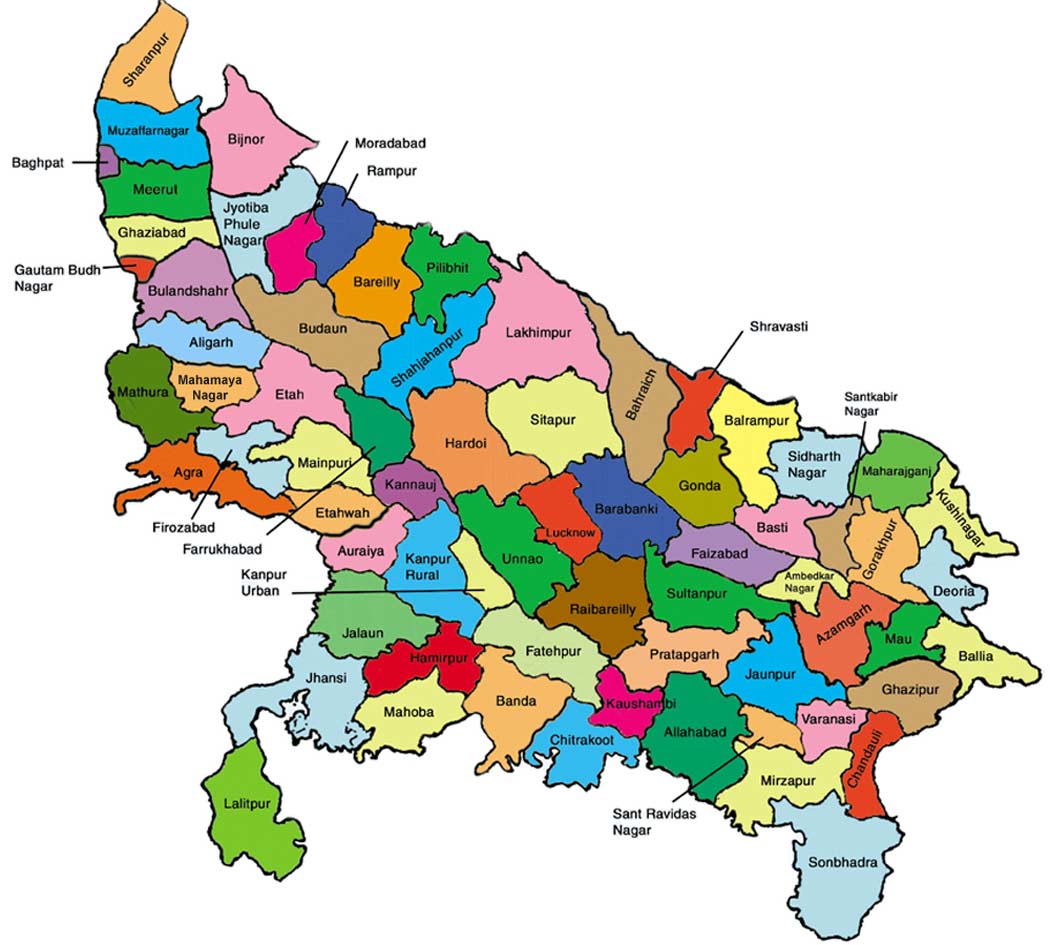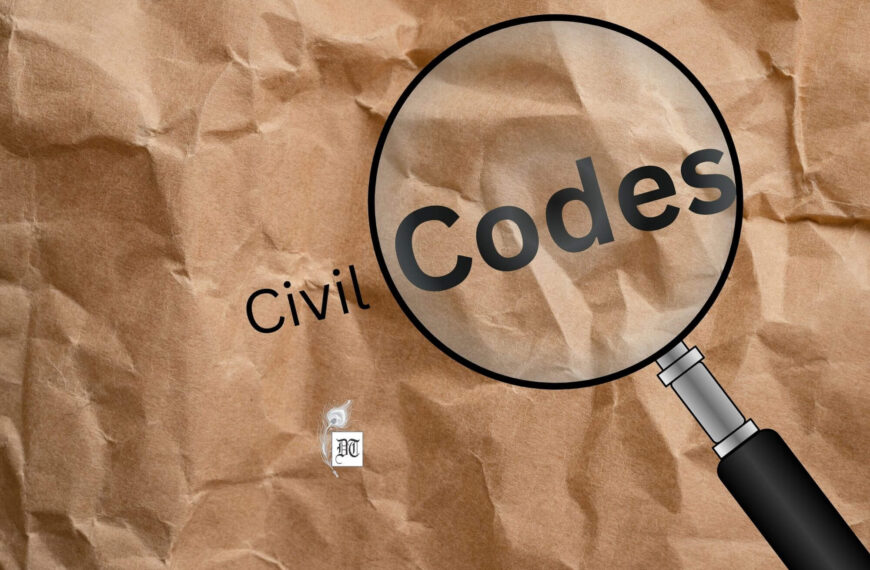Believe it or not, Modi has not just changed the way Indian politics is done. He has also transformed the party structure from within – creating his own team of workers aka ministers to the extent of sidelining the bigwigs that stood out brandishing the Hindutva flag once upon a time. It is this ‘politics within politics’ that seems to colour the entire spectrum of political hierarchy within parties of Uttar Pradesh – leaving the state behind yearning for a true leader that can prove to be a ‘Messiah’ for this not-so-BIMARU Pradesh, opines Navodita, our Associate Editor, exclusively for Different Truths.
The popular belief is – the one who becomes the Chief Minister of Uttar Pradesh goes on to be a strong contender for the country’s top post, the Prime Minister’s seat – well then, where does Rajnath Singh fare in this clamour for leadership within the BJP? Believe it or not, Modi has not just changed the way Indian politics is done. He has also transformed the party structure from within – creating his own team of workers aka ministers to the extent of sidelining the bigwigs that stood out brandishing the Hindutva flag once upon a time. It is this ‘politics within politics’ that seems to colour the entire spectrum of political hierarchy within parties of Uttar Pradesh – leaving the state behind yearning for a true leader that can prove to be a ‘Messiah’ for this not-so-BIMARU Pradesh.
Let’s face it – Yogi was handpicked by Modi for the CM’s post reaching out to millions with his own ‘coterie of followers’ cut out from the rest of the veterans within the party. The loss of Gorakhpur and Phulpur in the by-polls earlier this year may have come as a surprise to some BJP netas, yet it was destined to go in Samajwadi Party’s kitty with the announcement of the BSP support of these self-proclaimed Lohiyawaads. SP’s Praveen Kumar Nishad gave a befitting defeat to BJP’s Upendra Dutt Shukla in Yogi’s bastion while in Phulpur (also a BJP seat belonging to Deputy CM Keshav Prasad Maurya) SP’s Nagendra Pratap Singh Patel won after defeating BJP’s Kaushlendra Singh Patel. Needless to say, the electorate is already on the lookout for an alternative to Yogiji as a Modi-stooge not because of incapability of the leaders so much as the need for an escape from excessive Hindutva, politics of the cows and unimplemented policies at the ground level. The voters have been forced to think- is Yogiji only going to remain confined to the announcement of more and more yojanas that are never going to see the light of day?
As BJP is gloating in the self-love of having announced a few developmental projects like those of the Metro Rail of Kanpur, Samajwadi Party’s Chacha-Bhateeja, at last, seems to have found peace what was once a reason for karyakartas to worry about an upcoming rift among the key leaders. It was not until the loss in Assembly polls in 2017 that drew the warring duo together with both Akhilesh Yadav, Shivpal Yadav and Azam Khan holding an important meeting in closed doors seemingly drawing a new strategy for the party.
As Buaji struggled with a threat for survival in the last Assembly elections, it was but natural for the two parties Bahujan Samaj Party and SP to come together for the by-polls of 2018. That Dalit card still goes strong among the largely uneducated masses of the state was quite evident in the electoral outcome of by-polls, which has sent ripples of unrest among the BJP bandwagon. What followed was yet another spate of announcements of policies with the recent announcement of hike of Minimum Support Price for farmers across the country done so in order to woo farmers.
Rahul Gandhi as the Congress party scion and successor born with a silver spoon fails to charm the masses and yet never ceases to remain the blue-eyed boy of the media that seeks to cover his political strategies that fail to deliver results or impress the electorate. His ‘Khaat Sabhas’ and ‘Janata Durbars’ have failed to cut much ice with the voters or even his followers within his own constituency- Amethi where he was recently on a two-day visit. The Congress party has its own veterans and sons and daughters of veteran Congress leaders; yet Rahulji prefers to promote new faces and ‘youthful’ leaders as was clear from the Gujarat elections and his support of Hardik Patel, Alpesh Thakore, and Jignesh Mewani. Is Rahul, like us, also looking for those ‘new, dynamic faces’ that can redeem the country? Maybe yes. Indian politics, it may be said, seems to be going through troubled waters.
On the one hand you have a handful of literate, educated lot who are still battling with the notion of  ‘nationalism’ as propounded by the Rightists (or should we call it ultra-nationalism); on the other is a large majority of uneducated, illiterate masses which include farmers, artisans, labourers, and unorganized sector that often get swayed by ‘popular mood’ and even get carried away by sops being promised by leaders just ahead of elections (who probably never revisit them once elections are over and won). It is this larger unorganised lot that the so-called ‘secularists’ seem to target- be it the Janata parties (with the likes of SP, Rashtriya Lok Dal) seeking to deliver social justice or at least voicing their concerns for the meek and the downtrodden and the have-nots or the Congress party which often voices its concern for farmers. Caste factor continues to dominate UP elections and Mayawati seems very relevant in the current political scenario with the larger issue of reservation constantly being debated and discussed.
‘nationalism’ as propounded by the Rightists (or should we call it ultra-nationalism); on the other is a large majority of uneducated, illiterate masses which include farmers, artisans, labourers, and unorganized sector that often get swayed by ‘popular mood’ and even get carried away by sops being promised by leaders just ahead of elections (who probably never revisit them once elections are over and won). It is this larger unorganised lot that the so-called ‘secularists’ seem to target- be it the Janata parties (with the likes of SP, Rashtriya Lok Dal) seeking to deliver social justice or at least voicing their concerns for the meek and the downtrodden and the have-nots or the Congress party which often voices its concern for farmers. Caste factor continues to dominate UP elections and Mayawati seems very relevant in the current political scenario with the larger issue of reservation constantly being debated and discussed.
Like in other states, in Uttar Pradesh, too, voters are many. Yet with an increasing number of women politicians coming up even at the Gram Panchayat level, there has been greater involvement of women in politics, especially as crimes against women are reported more than ever. There is a need to debate and discuss more pertinent issues related to reservation- women’s reservation, reservation based on economic backwardness, ‘creamy layer’ within the reserved categories that have availed the offer in the last few decades since independence and the relevance of Dalit reservation where a few Dalits still remain languished in poverty and social backwardness. The current government needs to think beyond ‘Sri Ramayana Express’, cow vigilantism and the saffron agendas. Development does not only imply wooing big industrialists or having smooth flyovers and highways but it needs to entail a more ‘holistic’ approach (possibly looking beyond a high GDP growth) with greater sense of freedom and emancipation for the socially and economically backward in order to generate a more ‘democratic progress’ of the country- one that includes a better human quality of life index. I am sure we all want to see a peaceful state with lesser incidents of mob lynchings, witch hunts, intolerance, and unemployment.
©Navodita Pande
Photos from the Internet
#Indian Politics #Unemployment #Inteolerance #Lynching #Hindustava #DifferentTruths






 By
By
 By
By

 By
By